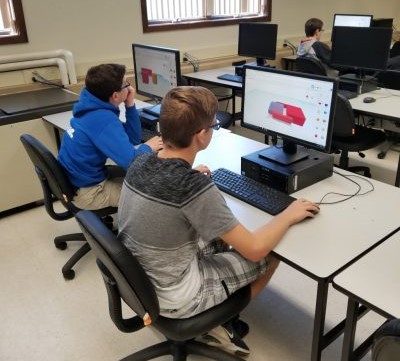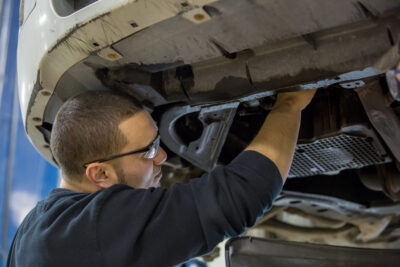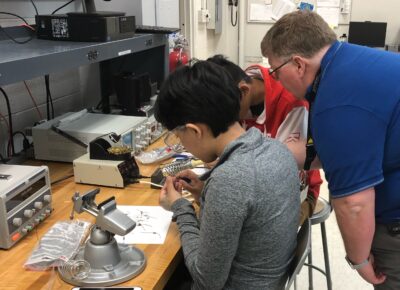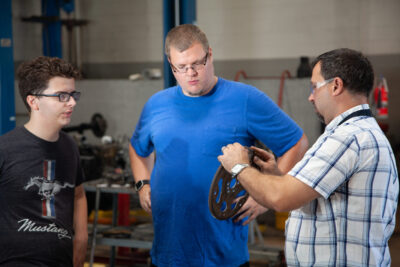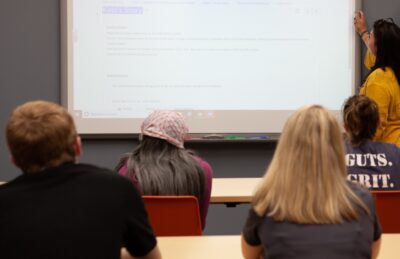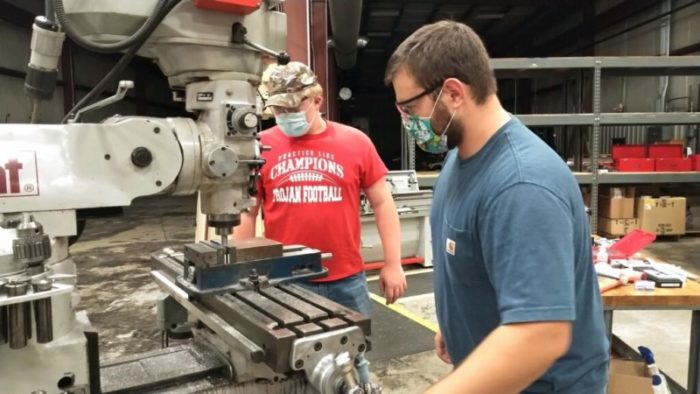By Mark Kozemko ’79, Johnson College’s Automotive Technology Program Director
Original published in the July 23, 2021 edition of the Valley Advantage.
Last month, we answered questions about what items to pack into a car care survival kit you’d take with you on a drive-away vacation. According to the response we received, it looks like you still have a few questions about getting your vehicle ready for summer travel. This month, we’ll cover some of the more specific questions we received over the past few weeks. Let’s get started.
Our first question is, “I don’t travel except for our annual vacation to the shore. Over the past three vacations, we used the same vehicle. Why is my fuel mileage different every year?”
There are several reasons your fuel mileage varies from year to year with the same vehicle.
First, I hope you’re performing a pre-travel inspection on your vehicle, including tire condition and air pressure, oil condition and level, transmission fluid condition and status and more.
If you are not performing that inspection, I highly recommend you do. Improper tire pressure alone can reduce fuel mileage significantly. Old or incorrect engine oil can lose its ability to lubricate correctly, causing the engine to work harder and use more fuel. The same goes for transmission fluid. If the transmission is not shifting correctly, your fuel mileage may decrease. The bottom line is, make sure all your fluids are up to par before you travel.
Second, road conditions can factor in your vehicle’s ability to get the most miles from a gallon of fuel. The friction between the road surface and the tire can cause unnecessary drag and make the engine work harder. The constant stopping and starting in construction areas also factors into decreased fuel mileage.
Third, driving habits are a huge factor in getting good to excellent fuel mileage. The more you follow posted speed limits and start from a stop, smoothly, you will see an increase in your fuel mileage.
For example, I recently purchased a new truck — used, but new to me. It has an eight-cylinder engine, as did my old truck, but slightly bigger. My old truck got a whopping 11-12 miles per gallon with my driving habits. With the same driving habits, mostly highway driving, the new truck consistently gets about 3-4 mpg better. When I drive to and from work, 20 miles each way, through the small cities and towns, follow speed limits and don’t push my engine to outperform itself, the truck is getting just under 20 mpg, which is a lot better than the 11-12 mpg I was getting with my old truck.
If you are a seasoned driver, you may ask yourself, isn’t highway mileage supposed to be more than city mileage? It’s written on vehicle window stickers that way. The fact is, newer models have engine and transmission options designed to, if driven correctly, increase fuel mileage.
“Why does my air conditioning cut out when I accelerate?” is our second question.
More than likely, this issue is a cracked or broken vacuum line to your heating, ventilation and air conditioning control unit. If you pay close attention when your air conditioning cuts out, you’ll notice it doesn’t really cut out. The airflow changes direction. It may be redirected to the floor or defroster vents.
This redirection happens because when you accelerate, you decrease the vacuum that your engine creates. When you reach cruising speed, or let up a bit on the accelerator pedal, you’ll probably notice the airflow returns to the dashboard vents.
You can self-diagnose this issue if you’re a Mr. or Ms. Fix It, or, you can have your repair garage look into it. Newer vehicles have electronic controls that virtually eliminate this issue. Of course, other things can go wrong in these systems, so keep your eyes on them.
Our third and last question of the month is “How do I know the correct tire pressure for my vehicle?”
Usually, the manufacturer puts a sticker in the driver’s door jamb that indicates the correct tire pressure. If you don’t see it there, it may be stuck to the fuel door or in the fuel filler neck area. If a tire pressure sticker is not on your vehicle, the best thing to do is to google the make and model of your vehicle to find out proper tire pressure. Whatever you do, DO NOT fill to the maximum pressure found on the tire itself. It is not the correct operating pressure and may cause a dangerous situation. Go by what is listed on the sticker, not the tire itself.
I hope everyone enjoys the rest of the summer. Drive sensibly and stay safe.


